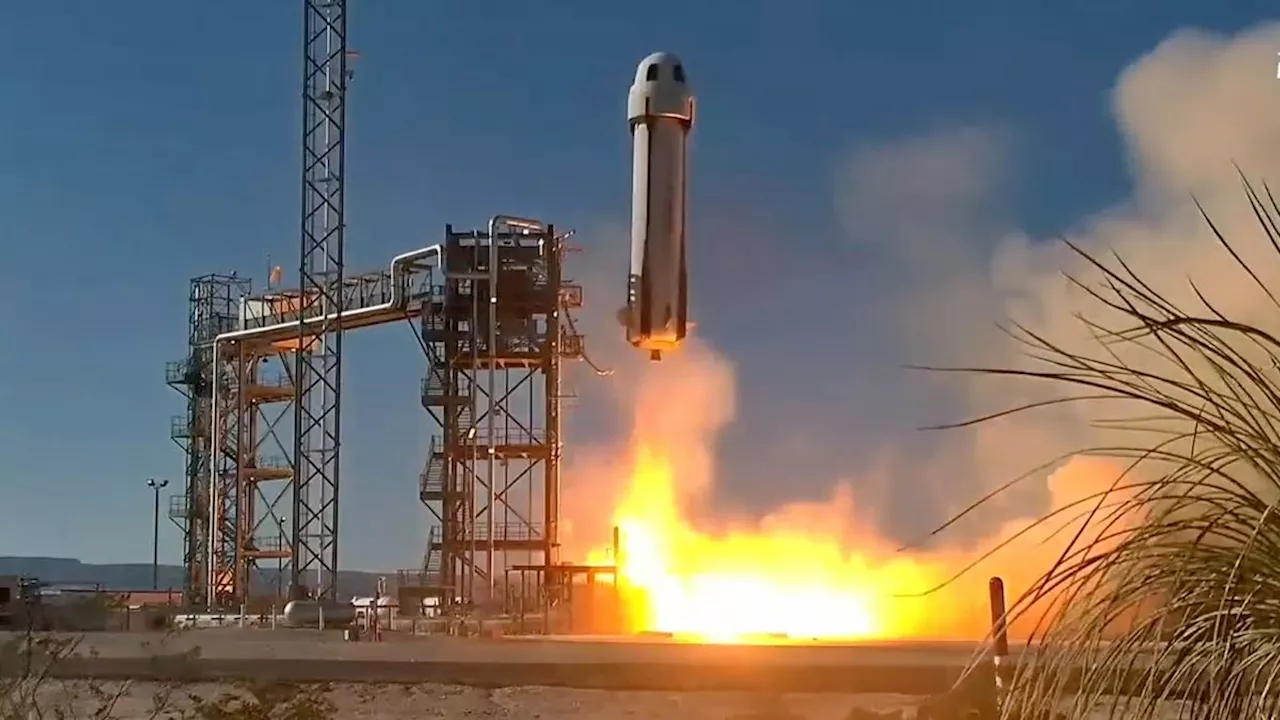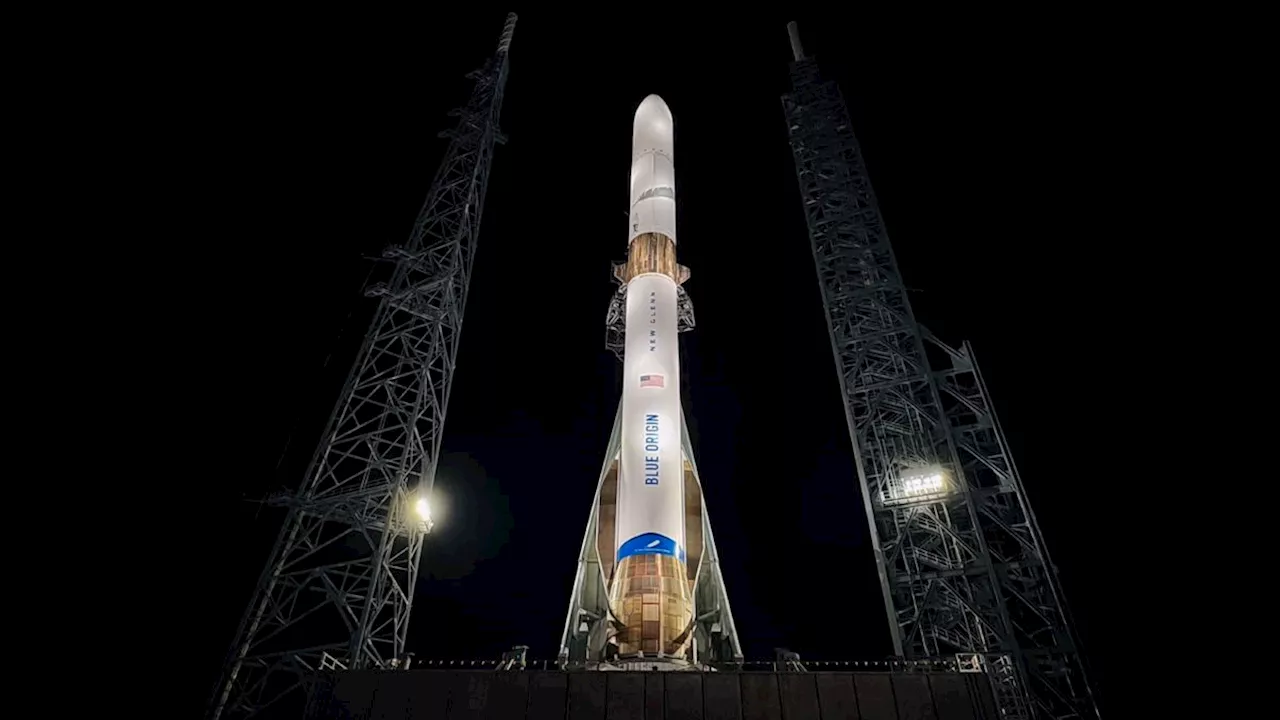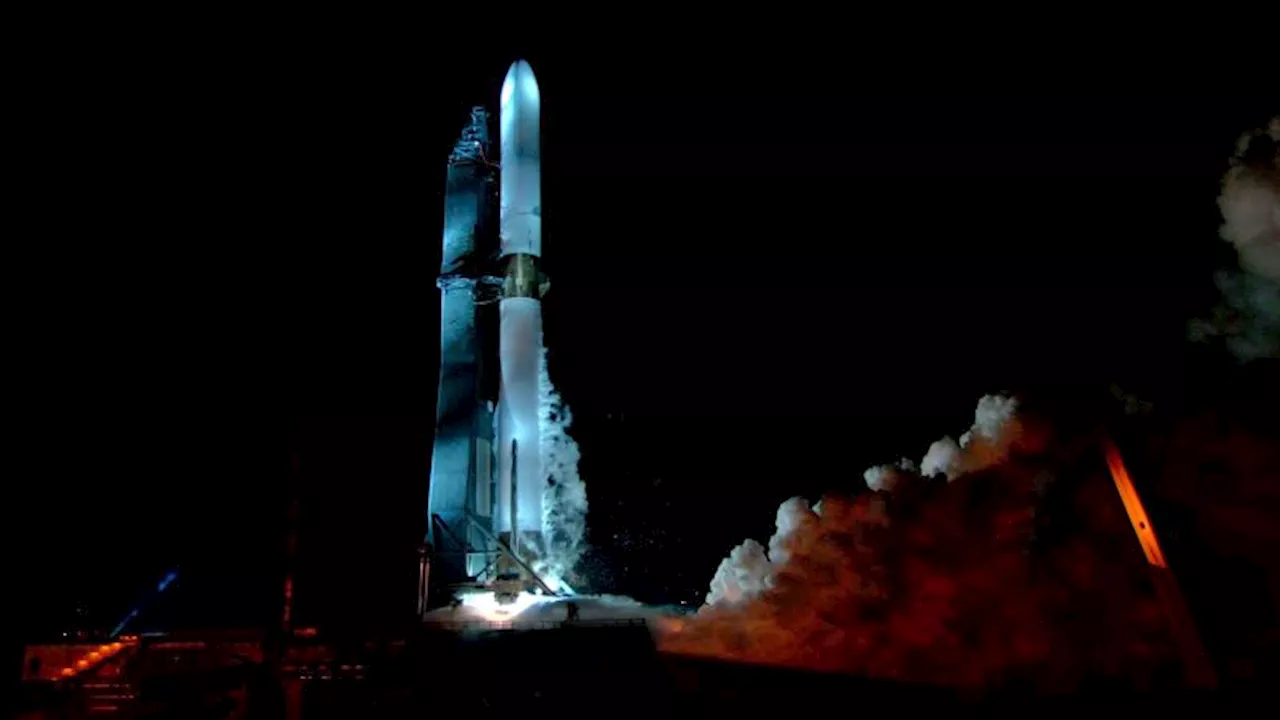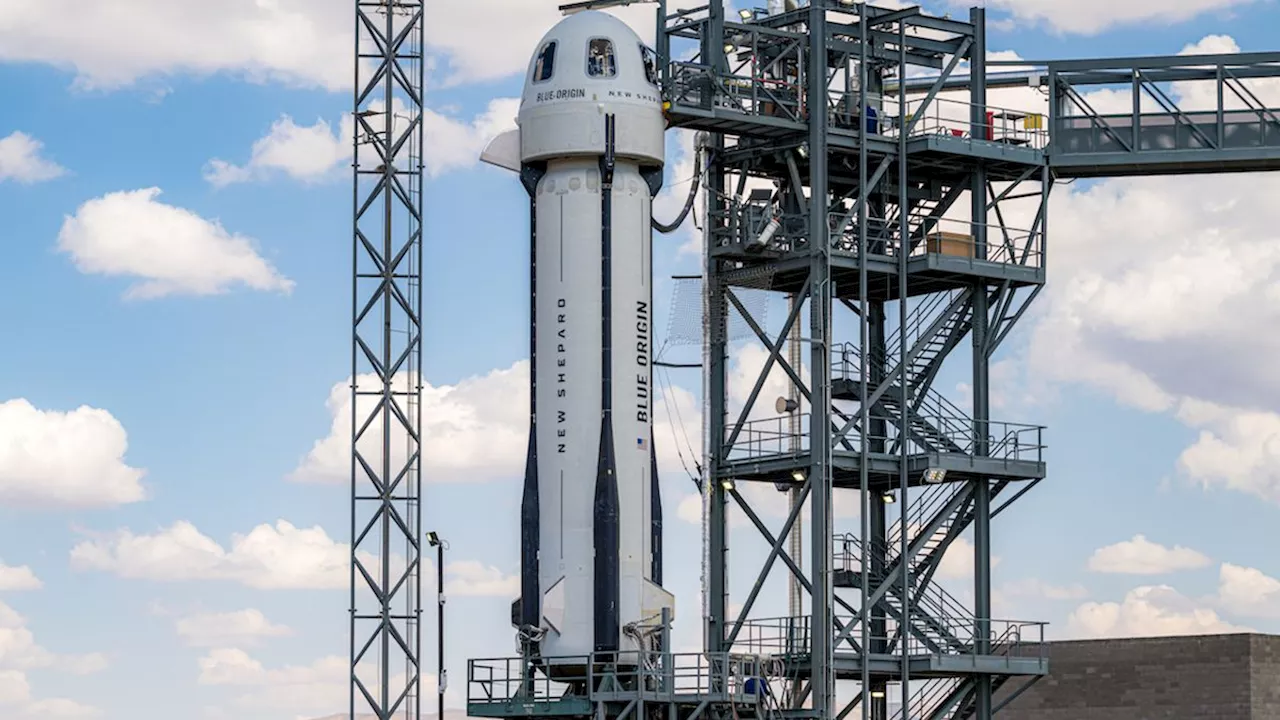Blue Origin is launching 30 different experiments on the New Shepard NS-29 mission, 29 of them aimed at testing technologies for lunar exploration. The New Shepard capsule will spin to simulate one-sixth Earth's gravity, allowing for low-cost testing of lunar payloads.
Blue Origin is gearing up for a significant launch on January 28, 2025, as its New Shepard rocket and capsule will embark on a simulated moon gravity flight. This mission, designated NS-29, marks the first suborbital launch of 2025 for Blue Origin and will test a variety of moon-related technologies. The launch is scheduled to take place from Blue Origin 's Launch Site One in West Texas, with the exact time yet to be officially confirmed. However, it is anticipated to occur around 10:30 a.m.
local time. Blue Origin has not disclosed its full launch window for January 28, but it's possible the company has several hours available for the NS-29 launch attempt. The exact launch time could be subject to adjustments if Blue Origin encounters weather issues or minor technical glitches, which often require time to resolve.A key highlight of this mission is the innovative spin maneuver designed to mimic the moon's gravity. The New Shepard capsule will utilize its reaction control system thrusters to spin at approximately 11 revolutions per minute. This spin rate will create an environment simulating one-sixth Earth gravity at the midpoint of the crew capsule lockers. This simulated lunar gravity period will last for about two minutes, providing valuable insights for future lunar missions. Blue Origin emphasizes that this spin maneuver allows customers to accelerate their learning and technology readiness for lunar payloads at a significantly reduced cost compared to traditional testing methods.The NS-29 mission will carry a total of 30 experiments, with 29 of them focused on testing technologies for lunar exploration. Of these, 17 experiments are from NASA, aimed at evaluating a wide range of instruments, anchors, dust conveyors, and other devices that could be instrumental for future robots or astronauts on the moon.The experiments on board NS-29 include: Electrostatic Dust Lofting (studying how moon dust is electrically charged and lifted when exposed to ultraviolet light), Honey Bubble Excitation Experiment (H-Bee, investigating how bubbles behave in thick liquids on the lunar surface), Sparta (testing a toolkit for 'geomechanical testing below the lunar surface' to understand how lunar gravity might affect it), LUCI (examining how materials react when they catch fire in lunar gravity), and FEMTA (testing a novel water-based microthruster for small satellites in a low-gravity environment like the moon). Adding a touch of inspiration, the mission will also carry thousands of postcards into space as part of Blue Origin's Club for the Future non-profit initiative. This program aims to inspire and motivate future generations to pursue careers in science, technology, engineering, arts, and mathematics. The New Shepard booster is expected to separate from the capsule a few minutes into the flight and return to Earth for a vertical landing on a pad near the launch site. The capsule itself will reenter the atmosphere and land under parachutes near the launch site.While Blue Origin anticipates a successful launch on January 28, the company has contingency plans in place. If a larger delay occurs, Blue Origin may have a wide launch window on that day, extending the launch beyond its initial target time. If launching on January 28 proves impossible, Blue Origin could reschedule the mission for the following days, potentially as late as early February. The exact new launch date will depend on the reason for the delay and whether Blue Origin can complete any necessary adjustments or repairs in time.
Blue Origin New Shepard Moon Gravity Simulation Lunar Technology NASA Experiments Space Launch Suborbital Flight
United States Latest News, United States Headlines
Similar News:You can also read news stories similar to this one that we have collected from other news sources.
 Blue Origin's New Shepard to Simulate Lunar Gravity on Uncrewed Research FlightBlue Origin will launch its 29th New Shepard mission, an uncrewed research flight simulating lunar gravity conditions. The flight will test various lunar technologies and is supported by NASA.
Blue Origin's New Shepard to Simulate Lunar Gravity on Uncrewed Research FlightBlue Origin will launch its 29th New Shepard mission, an uncrewed research flight simulating lunar gravity conditions. The flight will test various lunar technologies and is supported by NASA.
Read more »
 Blue Origin Successfully Completes Hotfire Test for New Glenn RocketBlue Origin has achieved a significant milestone with its New Glenn NG-1 rocket by successfully completing a 24-second hotfire test of its BE-4 engines. This marks the first time the entire fully integrated vehicle, including both stages, was tested alongside ground systems. The test provided engineers with an opportunity to rehearse launch procedures and validate simulation data against real-world scenarios. New Glenn is expected to have its maiden flight in the coming days.
Blue Origin Successfully Completes Hotfire Test for New Glenn RocketBlue Origin has achieved a significant milestone with its New Glenn NG-1 rocket by successfully completing a 24-second hotfire test of its BE-4 engines. This marks the first time the entire fully integrated vehicle, including both stages, was tested alongside ground systems. The test provided engineers with an opportunity to rehearse launch procedures and validate simulation data against real-world scenarios. New Glenn is expected to have its maiden flight in the coming days.
Read more »
 Blue Origin's New Glenn Rocket Completes Successful Hotfire TestBlue Origin successfully conducted a 24-second hotfire test of its New Glenn NG-1 rocket, marking a significant milestone before its anticipated test flight. The entire integrated vehicle, including the first and second stages, was tested alongside ground systems, allowing engineers to rehearse launch procedures and validate simulation data against real-world scenarios. This test follows the successful use of Blue Origin's BE-4 engines on ULA's Vulcan rocket, demonstrating their reliability and ability to compensate for potential issues during flight.
Blue Origin's New Glenn Rocket Completes Successful Hotfire TestBlue Origin successfully conducted a 24-second hotfire test of its New Glenn NG-1 rocket, marking a significant milestone before its anticipated test flight. The entire integrated vehicle, including the first and second stages, was tested alongside ground systems, allowing engineers to rehearse launch procedures and validate simulation data against real-world scenarios. This test follows the successful use of Blue Origin's BE-4 engines on ULA's Vulcan rocket, demonstrating their reliability and ability to compensate for potential issues during flight.
Read more »
 FAA Grants Blue Origin Launch License for New GlennThe Federal Aviation Administration (FAA) has issued a commercial space launch license to Blue Origin for its New Glenn rocket. This license allows Blue Origin to conduct orbital missions from Cape Canaveral Space Force Station in Florida. The New Glenn debut will be a certification mission required by the U.S. Space Force before the company can launch national security satellites.
FAA Grants Blue Origin Launch License for New GlennThe Federal Aviation Administration (FAA) has issued a commercial space launch license to Blue Origin for its New Glenn rocket. This license allows Blue Origin to conduct orbital missions from Cape Canaveral Space Force Station in Florida. The New Glenn debut will be a certification mission required by the U.S. Space Force before the company can launch national security satellites.
Read more »
 Blue Origin's New Glenn Rocket Imminent for First Test FlightBlue Origin is preparing for the first test flight of its New Glenn rocket, a heavy-lift launch vehicle designed to compete in the growing commercial space market. While the exact launch date remains unconfirmed, indications point to a launch window opening on January 6th.
Blue Origin's New Glenn Rocket Imminent for First Test FlightBlue Origin is preparing for the first test flight of its New Glenn rocket, a heavy-lift launch vehicle designed to compete in the growing commercial space market. While the exact launch date remains unconfirmed, indications point to a launch window opening on January 6th.
Read more »
 Blue Origin's New Glenn Rocket Prepped for Maiden FlightBlue Origin's New Glenn rocket, designed to compete with SpaceX's Falcon 9, is set for its first uncrewed launch from Cape Canaveral Space Force Station. The success of this mission is crucial for Blue Origin's future ambitions, which include national security launches, Amazon satellite deployment, and construction of a commercial space station.
Blue Origin's New Glenn Rocket Prepped for Maiden FlightBlue Origin's New Glenn rocket, designed to compete with SpaceX's Falcon 9, is set for its first uncrewed launch from Cape Canaveral Space Force Station. The success of this mission is crucial for Blue Origin's future ambitions, which include national security launches, Amazon satellite deployment, and construction of a commercial space station.
Read more »
